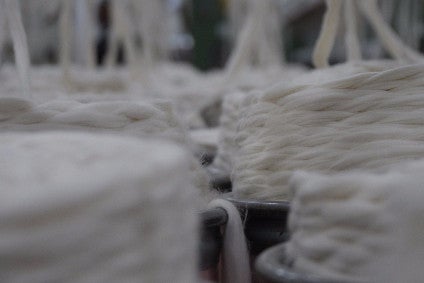
Asos, Kering, Levi Strauss & Co and Nike are among 13 clothing and textile brands who have committed to using 100% sustainable cotton by 2025.
The Sustainable Cotton Communiqué was signed at a high-level meeting attended by HRH The Prince of Wales and organised by The Prince’s International Sustainability Unit (ISU) in collaboration with Marks & Spencer and The Soil Association.
The companies, also including Eileen Fisher, H&M, Ikea, Lindex, Sainsbury’s, Tesco and Woolworths Holdings, have all pledged to ensure 100% of the cotton they use comes from sustainable sources by 2025.
The move follows a year of work between the ISU, M&S and The Soil Association to bring together leading companies and various ‘standards’ organisations to discuss how to reduce the negative environmental and social impacts often associated with cotton production.
While it was found there have been substantial gains made over the past few years in scaling the production of more sustainable forms of cotton, with production now higher than ever before, companies are only actively sourcing less than one-fifth of more sustainable material.
The ISU hopes the communiqué will act as a catalyst to spur a shift in the market towards the use of more sustainable cotton. Companies will be required to independently publish their progress from 2018.

US Tariffs are shifting - will you react or anticipate?
Don’t let policy changes catch you off guard. Stay proactive with real-time data and expert analysis.
By GlobalDataThe Communiqué defines sustainable sources as organic, Fairtrade, Better Cotton Initiative (BCI), Cotton Made in Africa (CMiA) and recycled cotton certified to an independently verifiable standard such as the Global Recycled Standard (GRS) or the Recycled Claim Standard (RCS). In addition, Cotton Connect’s REEL programme and code provides a starting point for businesses aiming to for greater sustainability in their cotton supply chain.
“While each of these standards delivers different outcomes, together they form a strong foundation for improving cotton’s social and environmental sustainability across the industry,” says Peter Melchett, Soil Association policy director.
“Switching to organic cotton supports a way of farming that directly benefits both the local and global environment. Organic cotton farming has been proven to significantly reduce greenhouse gas emissions and water use and virtually eliminates the use of pesticides. Organic cotton farmers grow a variety of crops to minimise pests and diseases and to maintain healthy soils, which means farmers have the additional benefit of a more secure livelihood, and secure access to food. The FAO estimates that nearly 100m rural families directly depend on cotton production, and a move to producing sustainable cotton will help change the lives of these families for the better.”
A Life Cycle Assessment (LCA), covering global organic cotton production found organic cotton produced 978kg of CO2e (carbon dioxide equivalent) per tonne of cotton fibre – a 46% reduction in global warming potential compared to non-organic cotton. It also found a 91% reduction in water consumption: only 180 cubic metres of blue water is consumed per tonne of organic cotton, compared to 2,120 cubic metres in non-organic cotton.



